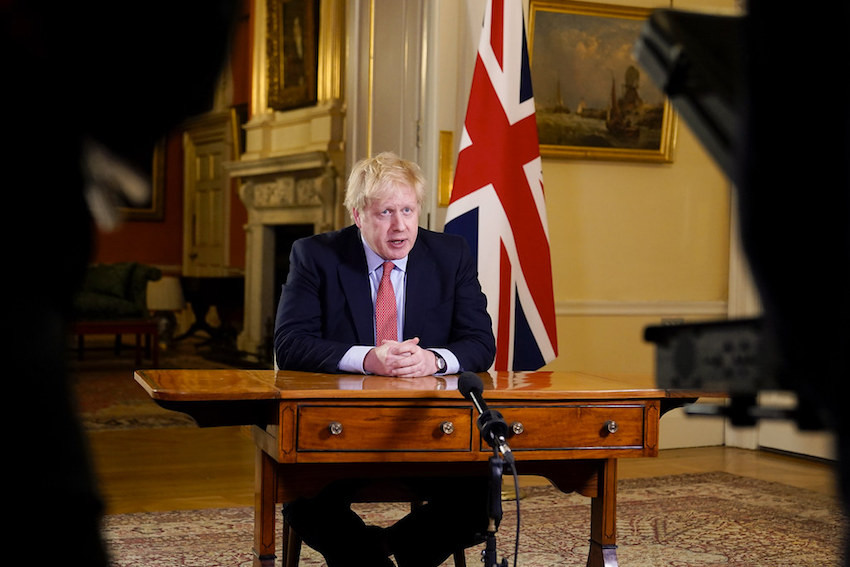UK issues “stay at home” order
The British government became the latest to restrict movement to combat transmission of the coronavirus that causes covid-19. As elsewhere in Europe, inhabitants can only leave their homes to go to work, shop for essential items, and for medical and care reasons. Public gatherings of more than two were banned. The moves came after many people in Britain were seen flouting social distancing recommendations. The prime minister, Boris Johnson, said: “I must give the British people a very simple instruction: You must stay at home.” Sources: BBC, Marketwatch, NPR, Reuters and the Telegraph.
Other shutdown orders
Among other places, stay at home measures were also introduced in the US state of Hawaii (per The Guardian and Honolulu Civil Beat) and in South Africa (per France 24 and The Guardian).
Tighter restrictions in France
The French government said people out for a walk or exercise were now limited to a radius of 1km from their home and a time limit of 1 hour. Fines for repeat offenders were raised to €1,500. Sources: The Local France and Politico and Reuters.
Olympics likely pushed back to 2021
A member of the International Olympic Committee said the Tokyo summer games would probably be postponed, most likely until next year. Sources: NPR, South China Morning Post and USA Today.
Global economy to take long-term hit
The OECD’s secretary general, Angel Gurría, said the coronavirus outbreak could cut world economic growth in half, to 1.5%, in 2020 and impact the economy “for years to come”. Sources: ABC News, BBC and CNBC.
Fed’s covid-19 monetary stimulus
The Federal Reserve, America’s central bank, said it would purchase assets such as corporate bonds “in the amounts needed to support smooth market functioning and effective transmission of monetary policy to broader financial conditions and the economy.” In other words, it would print money in unlimited amounts. The Fed also said it would lend money to small and mid-sized businesses. Sources: Bloomberg, CNBC, Financial Times, The Guardian and Reuters.
US senate fails to enact fiscal stimulus
Talks will continue after Democrats and Republicans in the US senate did not agree on a $1trn-$2trn covid-19 rescue bill. Sources: CNBC, Financial Times, Marketwatch, NPR and Politico.
Germany’s covid-19 stimulus
The German government is introducing €750m in emergency spending (including borrowing €150m which would break the country’s debt cap). Sources: Bloomberg, CNBC and Reuters.
Easyjet founder urges plane cuts
The founder of one of Britain’s main airlines, Easyjet, said the carrier should reduce its fleet by one-quarter. Sources: Financial Times and Mail Online.
Santander moves to preserve cash
One of Spain’s largest banking groups, Santander, said senior management had taken a 50% pay cut, it would review its 2020 dividends and shutter branches. Sources: Financial Times and Reuters.
Windows security bug
Microsoft warned that hackers are exploiting a vulnerability in all versions of Windows and there is no patch available. Sources: Ars Technica, The Register, Seeking Alpha, Techcrunch and ZDnet.
Salmond cleared of sexual assault allegations
Alex Salmond, the former first minister of Scotland, was acquitted of 12 sexual assault charges. Sources: BBC, The Guardian and Independent.
Marijuana classified as “essential” in California
Cannabis dispensaries have been declared essential services and thus have reopened during California’s coronavirus shutdown. Sources: NPR, Quartz and Reuters.
Stay at home fitness
Want to keep fit while maintaining social distance? Here is a selection of “best workout apps” that you can use at home from Business Insider, CNBC, GQ, Marie Claire and Tom’s Guide.
Today’s breakfast briefing was written by Aaron Grunwald
